| Selo | Rowman & Littlefield Publishing Group Inc |
|---|---|
| Edição | 0 |
| Idioma | Inglês |
| Autores | Jean-Pierre K. Bongila |
| Acabamento | Capa Dura |
| Quantidade de Páginas | 186 |
| Origem | Literatura Estrangeira |
 Massacre em Vigário Geral: os 30 anos da chacina que escancarou a corrupção policial do Rio (1305)
Massacre em Vigário Geral: os 30 anos da chacina que escancarou a corrupção policial do Rio (1305)
RECORD
R$ 79,90 à vista Cidade-modelo e região metropolitana
Cidade-modelo e região metropolitana
EdUERJ
R$ 45,90 à vista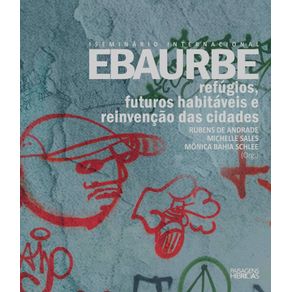 I Seminário Internacional EBAURBE: refúgios, futuros habitáveis e reinvenção de cidades
I Seminário Internacional EBAURBE: refúgios, futuros habitáveis e reinvenção de cidades
Paisagens Híbridas
R$ 85,00 à vista A Nova Ordem Mundial
A Nova Ordem Mundial
Nelpa
R$ 50,00 à vista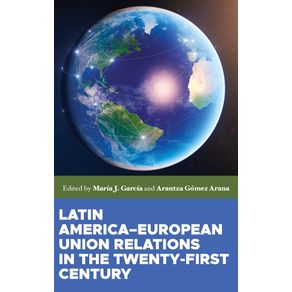 Latin America-European Union relations in the twenty-first century
Latin America-European Union relations in the twenty-first century
Manchester University Press (P648)
R$ 998,01 ou até 3x sem juros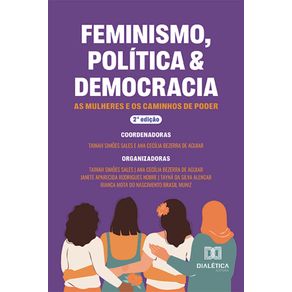 Feminismo, política e democracia - As mulheres e os caminhos de poder
Feminismo, política e democracia - As mulheres e os caminhos de poder
Dialética
R$ 157,90 ou até 3x sem juros Capitalismo, O Homem Totalitário & A Banalidade Do Mal
Capitalismo, O Homem Totalitário & A Banalidade Do Mal
Clube de Autores
R$ 68,78 à vista Pós-neoliberalismo & O Mito Do Sucesso Escolar
Pós-neoliberalismo & O Mito Do Sucesso Escolar
Clube de Autores
R$ 58,90 à vista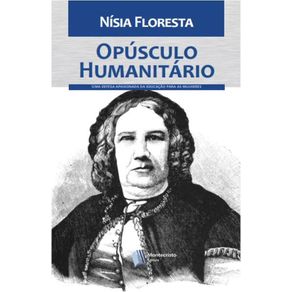 Opúsculo Humanitário
Opúsculo Humanitário
Montecristo Editora
R$ 59,90 à vista Essa é nossa república, Sócrates - Sem pontos fortes com um mar de fraquezas
Essa é nossa república, Sócrates - Sem pontos fortes com um mar de fraquezas
Ases da Literatura
R$ 49,90 à vista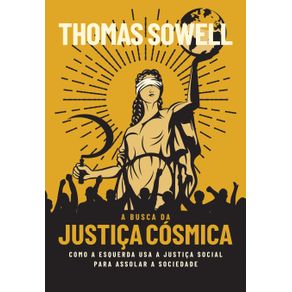 A busca da justiça cósmica
A busca da justiça cósmica
LVM Editora
R$ 49,90 à vista CIÊNCIA POLÌTICA - Lições Sobre o Jogo do Poder
CIÊNCIA POLÌTICA - Lições Sobre o Jogo do Poder
Editora Unijuí
R$ 56,00 à vista (Des) Informar e Punir - A construção do medo na sociedade como forma de controle
(Des) Informar e Punir - A construção do medo na sociedade como forma de controle
Dialética
R$ 73,40 à vista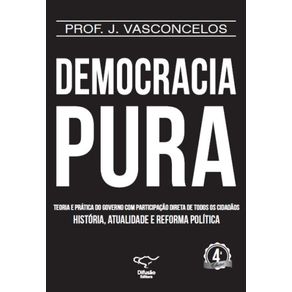 Democracia Pura - Teoria e prática do governo com participação direta de todos os cidadãos
Democracia Pura - Teoria e prática do governo com participação direta de todos os cidadãos
Difusão Editora
R$ 81,90 à vista Idoso O sustentáculo da Pátria no passado
Idoso O sustentáculo da Pátria no passado
Editora Albatroz
R$ 54,00 à vista Massacre em Vigário Geral: os 30 anos da chacina que escancarou a corrupção policial do Rio (1305)
Massacre em Vigário Geral: os 30 anos da chacina que escancarou a corrupção policial do Rio (1305)
RECORD
R$ 79,90 à vista Ensaios sobre a guerra: Rússia Ucrânia 2022
Ensaios sobre a guerra: Rússia Ucrânia 2022
Kinoruss
R$ 116,00 ou até 2x sem juros The New Order World
The New Order World
Nelpa
R$ 50,00 à vista As jactâncias ululantes da política brasileira
As jactâncias ululantes da política brasileira
Mondrongo
R$ 49,90 à vista Feminismo, política e democracia - As mulheres e os caminhos de poder
Feminismo, política e democracia - As mulheres e os caminhos de poder
Dialética
R$ 157,90 ou até 3x sem juros A Orillas Del Mar
A Orillas Del Mar
Clube de Autores
R$ 60,90 à vista Pós-neoliberalismo & O Mito Do Sucesso Escolar
Pós-neoliberalismo & O Mito Do Sucesso Escolar
Clube de Autores
R$ 58,90 à vista O espírito das leis - Montesquieu
O espírito das leis - Montesquieu
EDIPRO
R$ 94,90 à vista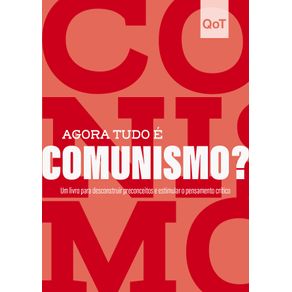 Agora tudo é comunismo?
Agora tudo é comunismo?
Astral Cultural
R$ 34,90 à vista Essa é nossa república, Sócrates - Sem pontos fortes com um mar de fraquezas
Essa é nossa república, Sócrates - Sem pontos fortes com um mar de fraquezas
Ases da Literatura
R$ 49,90 à vista A busca da justiça cósmica
A busca da justiça cósmica
LVM Editora
R$ 49,90 à vista Sur Global: La Construcción De Una Nueva Era
Sur Global: La Construcción De Una Nueva Era
Nelpa
R$ 50,00 à vista Como se levanta um Estado
Como se levanta um Estado
Editora Suisse
R$ 44,90 à vista A sagrada política
A sagrada política
Editora Albatroz
R$ 52,90 à vista Extrema Direita, volver!
Extrema Direita, volver!
Editora Albatroz
R$ 54,90 à vista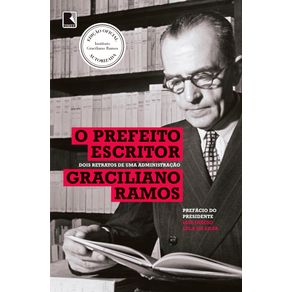 O prefeito escritor
O prefeito escritor
RECORD
R$ 59,90 à vista I Seminário Internacional EBAURBE: refúgios, futuros habitáveis e reinvenção de cidades
I Seminário Internacional EBAURBE: refúgios, futuros habitáveis e reinvenção de cidades
Paisagens Híbridas
R$ 85,00 à vista The New Order World
The New Order World
Nelpa
R$ 50,00 à vista Feminismo, política e democracia - As mulheres e os caminhos de poder
Feminismo, política e democracia - As mulheres e os caminhos de poder
Dialética
R$ 157,90 ou até 3x sem juros A Orillas Del Mar
A Orillas Del Mar
Clube de Autores
R$ 60,90 à vista Pós-neoliberalismo & O Mito Do Sucesso Escolar
Pós-neoliberalismo & O Mito Do Sucesso Escolar
Clube de Autores
R$ 58,90 à vista CIÊNCIA POLÌTICA - Lições Sobre o Jogo do Poder
CIÊNCIA POLÌTICA - Lições Sobre o Jogo do Poder
Editora Unijuí
R$ 56,00 à vista Ciência Política - Teoria Geral do Estado
Ciência Política - Teoria Geral do Estado
Dialética
R$ 120,65 ou até 2x sem juros (Des) Informar e Punir - A construção do medo na sociedade como forma de controle
(Des) Informar e Punir - A construção do medo na sociedade como forma de controle
Dialética
R$ 73,40 à vista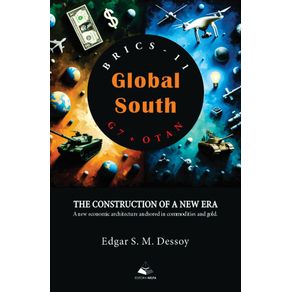 Global South: The Construction Of A New Era
Global South: The Construction Of A New Era
Nelpa
R$ 50,00 à vista Sul Global: A Construção de um Novo Tempo
Sul Global: A Construção de um Novo Tempo
Nelpa
R$ 50,00 à vista Como se levanta um Estado
Como se levanta um Estado
Editora Suisse
R$ 44,90 à vista A sagrada política
A sagrada política
Editora Albatroz
R$ 52,90 à vista Idoso O sustentáculo da Pátria no passado
Idoso O sustentáculo da Pátria no passado
Editora Albatroz
R$ 54,00 à vista Ferrovias, um tesouro perdido
Ferrovias, um tesouro perdido
Editora Albatroz
R$ 56,00 à vista